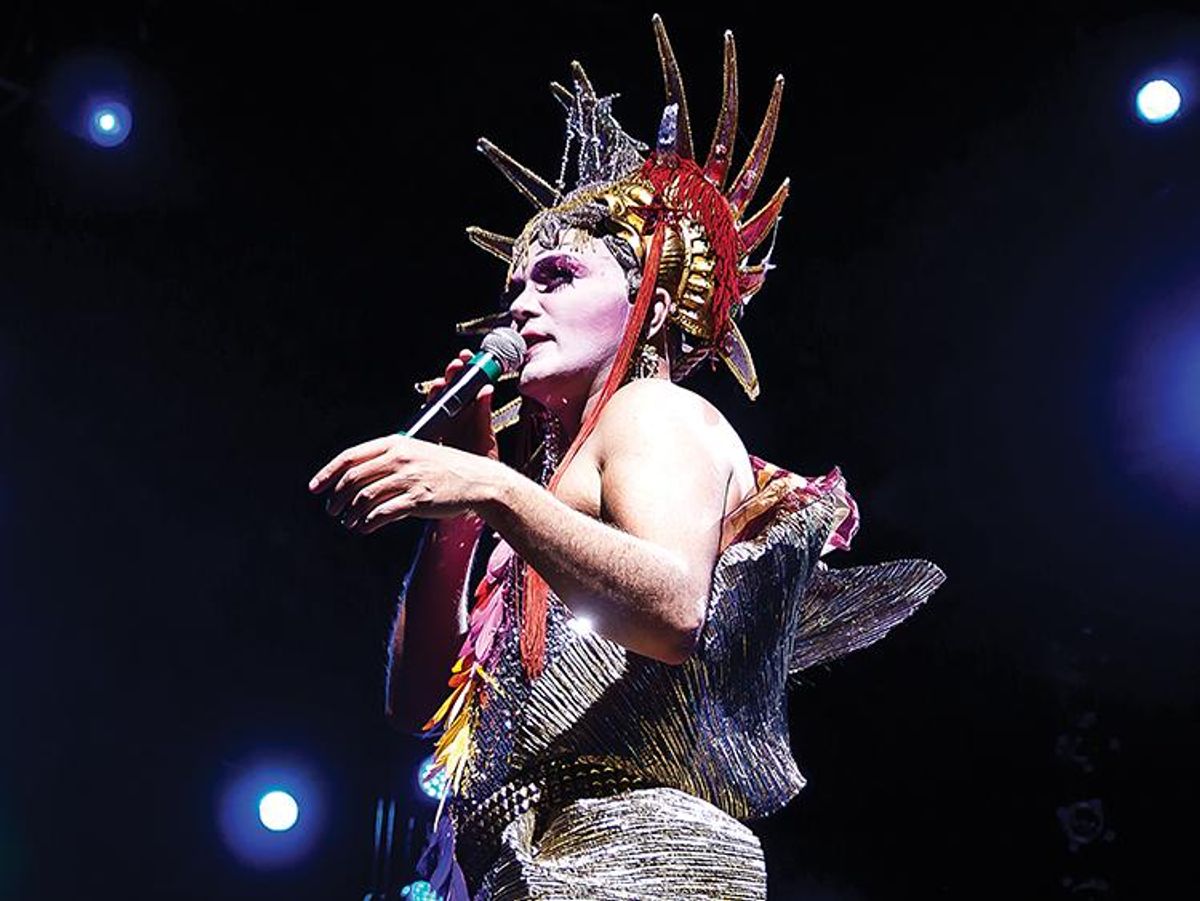Theater & Dance
Must-See: Taylor Mac's 24-Hour Intermissionless Marathon

"I think my job as a theater artist is to remind people of things that have been dismissed, buried, or forgotten."
August 26 2016 4:05 AM EST
November 04 2024 10:56 AM EST
By continuing to use our site, you agree to our Private Policy and Terms of Use.

"I think my job as a theater artist is to remind people of things that have been dismissed, buried, or forgotten."
Courtesy Ves Pitts.
This September, St. Ann's Warehouse in Brooklyn premieres Taylor Mac's A 24-Decade History of Popular Music. The sprawling epic presents a survey of the U.S. from 1776 to 2016, with songs endemic to the times and places it spotlights -- 246 (!) tunes in total. Mac (or judy, Mac's chosen pronoun) has curated a wildly inclusive set list ranging from archaic folk ballads and classic rock and roll to "You Are My Sunshine," all brought to life by the award-winning performance artist's singular neo-vaudevillian, postmodern style. Accompanied by a 24-piece orchestra and numerous guests, Mac will deliver this opus both as a series and as a 24-hour, intermission-less, once-in-a-lifetime marathon.
Out: Why pop music?
Taylor Mac: The goal of popular song is to reach people, to rally them to a cause or celebrate or mourn, or to engage them or allow them to check out. Sometimes it's horrible and oppressive. We sing this sea chantey about gang rape. A popular song can be destructive. I wouldn't say the show is about popular music, but about popular music to get to what the show is about.
Does it bother you that the audience you'll reach is relatively small?
I believe in grassroots activism, so the fact that we can only have 600 people doesn't mean the work is less important than a Beyonce concert. What can I do to reach the people in the room right now? How can I further the conversation of the culture, create something so outrageous that people ask, "What is this?"
So by grassroots activism, you mean the second - and third-degree reach of your work as it creates a dialogue and influences other artists?
Yes.
What do you think about movements that start as one thing downtown and then get co-opted by the mainstream, like Rent or Madonna with voguing?
I don't think RuPaul's Drag Raceis bad -- it's just not counterculture art. It would've been lovely to see Madonna at Danceteria, but it's also amazing to see her stadium shows now.
Did you see the Kiki and Herb reunion? A friend of mine had an issue with them making "Mississippi Goddam" about the North Carolina bathroom controversy.
I think better to have the conversation than not. I'm doing 240 years of songs, and if I just sing white music, that's a problem. I'm not trying to represent everybody. This is my subjective take on the history of popular music in the United States. If I sing a Nina Simone song and say, "Please go listen to her when my show's over," I'm not taking anything away.
So when does it become problematic, borrowing from or reviving other art or expressions of another culture?
When somebody takes something from the past and squashes the original story. I think my job as a theater artist is to remind people of things that have been dismissed, buried, or forgotten. I'm here to say, "Let me play that Nina Simone song. Let me point out this rage and women's lib and the 1780s." Now everyone can google that and find out about it on their own.
A 24-Decade History of Popular Music opens September 15 at St. Ann's Warehouse in Brooklyn, New York.
Like what you see here? Subscribe and be the first to receive the latest issue of Out. Subscribe to print here and receive a complimentary digital subscription.
Sexy MAGA: Viral post saying Republicans 'have two daddies now' gets a rise from the right